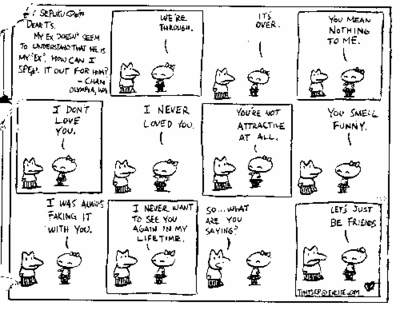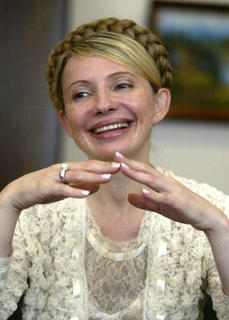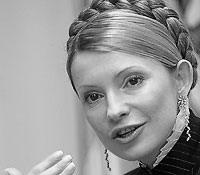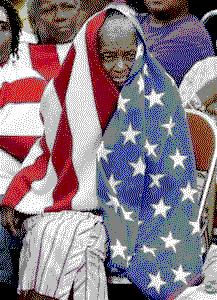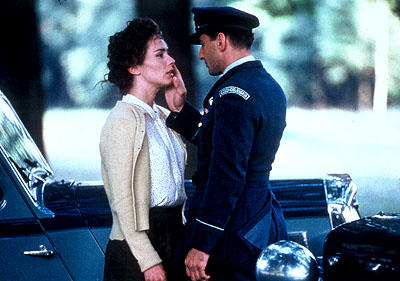
TARA FITZGERALD IN "DARK BLUE WORLD" (2001)
I am in a very romantic mood today. So, I have watched the "FrenchMan's Creek" with Tara Fitzgerald playing the leading Lady Dona St. Columb and Anthony Delon as Jean Aubrey. Tara is a classic romantic actress. And I rate her higher than Julia Roberts in playing classic romantic roles.
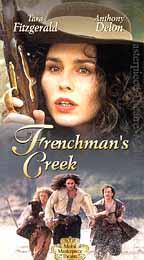
TARA FITZGERALD IN "FRENCHMAN'S CREEK" (1998)
Who knows the history of Mary Slessor and who knows the history of Mattie Terri Shackelford?
THE FRENCHMAN'S CREEK (TV)
Seeking to escape the stifling London court society, the beautiful headstrong Lady Dona St. Columb ('Tara Fitzgerald' ) flees to her family estate on the Cornish coast. Her new freedom swiftly brings her into contact with the dashingly handsome French privateer Jean Aubrey (Anthony Delon) who sweeps her off her feet and into a world of adventure on the high seas very different from her dull and boring life at court with her husband Sir Harry ('James Fleet' ). Together with Jean Aubrey and her enigmatic servant William (Danny Webb), Lady Dona conceives a daring plan to steal a ship right from under the noses of the English authorities. The theft enrages the authorities who make every effort to trap the French Pirate. However, as the noose begins to tighten around the lovers, Lady Dona is faced with the dilemma of duty and children with Sir Harry or freedom and excitement with Jean Aubrey.
--------------------------------------------------------------------------------
THE SUMMARY FRENCHMAN'S CREEK (NOVEL)BY DAPHNE DU MAURIER
--------------------------------------------------------------------------------
Daphne Du Maurier’s husband, Tommy, played a vital role in the 2nd World War and, like thousands of other service men and women; he was away from home for much of the time. Daphne and Tommy’s third child was born in November 1940 and Daphne was thrilled to finally have the son she had longed for. He was named Christian Frederick, but always known as Kits.
Because Tommy was away so much Daphne, her children and their nanny were invited to stay with Paddy and Henry Puxley (known as Christopher) who lived in a house called Langley End, near Hitchin in Hertfordshire. Paddy had a very small staff to help her run her home and she had taken in two young evacuees, so Langley End was a full and busy household. Almost immediately childhood and winter illnesses struck and Daphne found her self heavily involved as all her children and then their nanny succumbed to measles, influenza, colds and coughs. It was extremely unusual for Daphne to have any involvement with domesticity and it was during this difficult and unromantic time that she began writing Frenchman’s Creek, which Daphne herself described as the only romantic novel she ever wrote. Victor Gollancz published Frenchman’s Creek towards the end of 1941.
The central character in Frenchman’s Creek is Lady Dona St Columb who lives with her husband Harry and their two small children Henrietta and James, at the court of Charles II. Dona and Harry spend much of their time in the company of Harry’s friend, Lord Rockingham and they all enjoy a life of aimless fun and merrymaking. Dona has a mild flirtation with Lord Rockingham and permits him to kiss her, but Rockingham misinterprets the situation and assumes a propritorial air over Dona while Harry looks on with lazy, slightly disapproving eyes.
One night, for a dare, Rockingham and Dona dress up as highwaymen and hold up the carriage of a well known, elderly woman from court. The woman is terrified and begs for mercy. Dona is ashamed of her actions and suddenly sees the futility of her life. With hardly a moment’s thought Dona decides to change her lifestyle and leaving her husband in London she sets off to Navron, Harry’s country estate in Cornwall. She takes the children and Patience their nurse with her but she tells Harry not to follow her, as she wants to be alone.
Dona has only ever visited Navron briefly on one previous occasion but on arrival it becomes obvious that all is not as expected. She had imagined a full staff running the household in the family’s absence. Instead she finds the house closed up and dusty with only William, the manservant, in residence. William is faultlessly hard working and respectful and quickly sets about cleaning the house and employing staff and yet there is something about this man with his dark eyes and little button mouth that puzzles Dona. He is not like any other servant that she has ever known and he seems to be quietly laughing to himself as though perhaps he holds a secret.
When Dona goes to her room she finds a jar of tobacco and a book of French verse in the drawer by her bed. The book has initials inside the front cover and a tiny drawing of a sea gull. She wonders for a moment if William has been sleeping in her bed during her absence, but dismisses the idea, as she does not see him as a smoker or a man who would read poetry.
Dona and her children quickly settle into life at Navron. The house is beautiful and the grounds have a tranquillity that is soothing and restful. Dona spends many hours sitting in the sunshine and wandering in the grounds. At the edge of the estate is woodland and being springtime the woods are carpeted with bluebells.
One afternoon Dona’s peace is disturbed by a visit from Lord Godolphin, a local landowner. He tells Dona that a French pirate is in the area and that everyone living along the coast is in danger of being robbed or worse. The Navron land is on the Helford River close to where it flows out to sea and Godolphin believes that Dona could be in danger. He wants her to send for Harry as he needs his support in a plan to capture the pirate. When Lord Godolphin leaves Dona tells William that she will not be at home to any more visitors as she does not want her peace disturbed. William says that he understands Dona’s need to escape the life of London because his previous master had also escaped the conventional life and that is why he no longer needed William’s services.
That night Dona wakes up and goes to her window. She is surprised to see an unknown shadowy figure standing by the woods at the edge of the lawn, then William appears hurrying across the lawn towards him and a conversation takes place. Next day Dona writes to Harry and tells him about Lord Godolphin‘s visit and about the French pirate but she does not ask him to come down to Cornwall.
Later that day when everyone in the household is occupied Dona makes her way across the lawn to the woods where she saw William and the stranger. She walks on through a thickly wooded area and suddenly she glimpses water through the trees and discovers that a creek branching off from the Helford River actually passes through her woodland. Dona follows the path of the creek and then to her amazement she sees that the creek widens and that there is a ship harboured by a little quay almost hidden by the trees. There are men working on the ship, carrying out repairs and singing as they work. Everything then becomes clear to Dona, for the men are singing in French and she realises that she has discovered the hiding place of the French pirate. As Dona steps back there is the movement of someone behind her, a coat is thrown over her head, her arms are clamped to her side and she is knocked to the ground.
Dona struggles to free herself but the pirate that has captured her takes her to the ship and as she goes on board she sees the name La Mouette (the Sea Gull) written on the ships side. Here is another surprise because the ship is spotlessly clean, the crew are all smiling and when she is taken into their leaders cabin he is sitting sketching a heron and turns out to be an extraordinarily charming man and not the desperado that Lord Godolphin had described.
Initially, Dona’s manner is haughty and disdainful at being caught but she finds the French pirate so pleasant and attractive that she is soon deep in conversation with him and discovers that it is he who left the tobacco and the book of poems in her room; he who is William’s master; and that during the time that he has spent at Navron he has learned all about Dona and her life in London. Dona and the pirate share a meal together and then he tells her she is free to go home to her children knowing that her responsibilities lie with them. Before Dona leaves the pirate introduces her to his crew and tells them that Dona is to be allowed to come to the ship at any time. Dona arranges to meet the pirate again at Navron late the following night.
When Dona returns home she asks William to make sure that everyone in the household has gone to bed by 10pm the following night as she wants him to cook supper for her and her visitor in secret. William is delighted that his master has met his new mistress. The next night the French pirate comes to Navron and a bond is formed which brings Dona and the pirate ever closer. From then on William always covers for Dona when she is with the pirate. They meet often and the pirate teaches Dona to fish and to recognise the different bird sounds. As they talk she learns that his name is Jean Benout Aubery and that in the past he had been a landowner in Brittany with estates, money, friends and responsibilities but wearying of that life he had become a pirate and that much of what he steals goes to the poor.
One afternoon Dona visits Lady Godolphin. A number of other neighbours are also visiting and there is much talk of the pirate and how they plan to capture him. On her return from the Godolphin’s, Dona goes fishing with the pirate and tells him of the plan to capture him. The pirate says that he has been idle at the creek for too long and is planning another adventure that will give the likes of Lord Godolphin a run for their money. Dona begs to be allowed to go with the pirate and his crew and after much discussion it is agreed that she will sail on La Mouette as cabin boy. In addition Dona and the pirate make a wager that if she is seasick or frightened she will give him her ruby earrings and if she is not he will seize Godolphin’s wig for her.
So before dawn, a few days later, Dona joins La Mouette as she edges silently down the creek and out to the open sea in the direction of Fowey Haven and as Dona stands on the deck and looks at the French pirate, she knows that she loves him and that he feels the same about her.
Lord Godolphin’s brother-in-law, Phillip Rashleigh, lives in a house just behind the town quay at Fowey and he has just returned from the Indies with his ship, the Merry Fortune, loaded with cargo. This is the ship that the French pirate plans to take. So in the dead of night the French pirate and his crew, with Dona dressed as a cabin boy, leave La Mouette, in Lantic Bay, a short distance from the harbour mouth at Fowey and climb up the cliffs and then along the high ground until they can see the Merry Fortune anchored below them. The French pirate decides that Rashleigh would be better on board his ship than on land where he could signal an alarm. So while some of the men move down toward the Merry Fortune he sends Dona and one of his men across the river in a small boat so that Dona can go to Rashleigh’s house and lure him out.
When Dona finds Rashleigh’s house and knocks on the door she discovers that Lord Godolphin is visiting Rashleigh and they both come to the door. Dona hides in the shadows as she tells her tale, pretending that there is a problem on the Merry Fortune and that she has been sent to fetch Phillip Rashleigh as he is needed on board. Unfortunately the weather and the tide change and as Rashleigh and Godolphin head for the quay they see the Merry Fortune moving slowly toward the harbour mouth. They sound the alarm and suddenly there are people everywhere. A number of small boats set out in pursuit of the Merry Fortune, including one containing Rashleigh and Godolphin. Dona takes the opportunity to run to the safety of Readymoney cove, where she is picked up by a small boat and taken out to the Merry Fortune. People in the boats are shooting at the pirates on the Merry Fortune, but to no avail. Suddenly the French pirate reaches out from the ship with his sword and lifts the wig right off Godolphin’s head as he stands below them in the boat and Rashleigh shouts out that he can see a woman on board. Then the Merry Fortune gains speed and sails away.
Some of the crew take the Merry Fortune across to France while the rest return to the safety of the Helford River, in La Mouette. Dona is seasick on the return journey and knows she will need to forfeit her ruby earrings. After spending a day or two with the French pirate Dona returns to Navron early one morning. She has been away from home for five days and knows that her freedom can only be a temporary thing. During Dona’s absence William has covered for her by telling her children and the rest of the household that she is confined to her room with a fever and only he may tend her.
On her return Dona discovers that Harry and Lord Rockingham, bored with life in London, have arrived at Navron and that William has had some difficulty persuading them that Dona is too ill to see them. After a brief respite in her room Dona rejoins the household only to discover that Harry and Rockingham have heard all about the French pirate’s latest escapade and that they have invited Lord Godolphin, Phillip Rashleigh and a number of other local landowners to dinner that evening, with a view to setting out to capture the pirate before the night is out. William goes down to the creek to warn the pirates and is injured on his way back by one of Godolphin’s men who are already taking up positions along the Helford river and surrounding area.
That night at dinner, Dona, wearing her ruby earrings, dazzles the men and plies them with wine in the hope that she can distract them from the task ahead. Suddenly there is a knock at the door and when no servant appears to open it one of the dinner guests leaves the table and goes to the door. There is a shocked silence as the French pirate strides in and it becomes obvious that Dona, Harry and their visitors are surrounded by the pirates, who have crept silently in to the house and tied up all the servants. The French pirate asks Dona for her ruby earrings, telling her that he has a wager with his cabin boy that he will get them! Then he strips all the men of their swords and their valuables before ordering his men to take everyone upstairs and tie them up. William, though injured, has recovered slightly and helps the pirates. Meanwhile the French pirate takes Dona to one side. He kisses her and gives her back the ruby earrings and then he tells her that providing he and his crew get away they will be at Coverack Bay in La Mouette just before dawn and that William will take her there if she wants to go with them. He then steps outside into the darkness and disappears, leaving Dona alone.
Believing that everyone is tied up in the bedrooms, Dona turns to climb the stairs only to discover Lord Rockingham above her with a knife in his hand. One look at his face tells Dona that Rockingham knows all about French pirate and herself and that he is mad with jealousy. Rockingham taunts Dona with threats of what will happen to her is she is arrested for colluding with the pirates and then he lunges as her with the knife telling her that he is going to kill her. There is a terrible struggle but eventually Dona gains control and kills Rockingham to save herself. Dona is exhausted and weak from the fight and all she wants is for William to take her to her pirate, but when Harry and the others manage to free themselves they discover Rockingham’s body and believe that the French pirate has killed him.
The French pirate is captured by Godolphin’s men just as he is about to board La Mouette and although his ship and the rest of the crew get away, he is taken to Lord Godolphin’s estate and locked up in the keep with a gaoler and a guard to watch over him. Meanwhile William is missing but eventually the children’s nurse, Patience, confessed to Dona that she had hidden William in the nursery on the night that Lord Rockingham was killed and that he is now recovering from his injuries at the house of a trusted woman friend in the nearby village of Gweek.
Harry is distraught at the death of his friend Rockingham and believes Dona to be equally upset, so when she asks him to leave Navron with the children and Patience, telling him that she will follow him the next day, he agrees. As soon as everyone has gone Dona rides to Gweek to find William and they plan to rescue the French pirate. Dona then rides on to Lord Godolphin’s estate where she finds preparations underway to hang the pirate. She also finds a somewhat distracted Lord Godolphin waiting to speak to the doctor because Lady Godolphin, who has had a difficult pregnancy, is in labour. While Godolphin is so distracted Dona persuades him to let her see the prisoner and he takes her up into the keep. He then has to hurry away to see the doctor so he calls the gaoler to keep an eye on things. Despite this, Dona manages to slip the French pirate a gun and a knife and they manage to communicate to one another that the time for his escape will be eleven o’clock that night. A plan is forming in Dona’s mind and before she leaves the keep she engages the gaoler in conversation, discovering that he is a father of fourteen children with a great interest in the baby which is due to be born to Lady Godolphin. Dona tells him that she knows the doctor, a Dr Williams, and that she will ask him to call in at the keep with news once the baby is born. Dr Williams is, of cause, William, but neither Lord Godolphin nor the gaoler have any idea that there is a link between Dona and the French pirate, so they suspect nothing.
Later that night Dona and William ride to Lord Godolphin’s estate, dressed as the doctor and his groom. William has no trouble getting into the keep as the gaoler is expecting the “doctor”. A scuffle ensues but the French pirate, William and Dona have little trouble overcoming the gaoler and the guard. They ride away heading for the coast where they make camp for the rest of the night. As the sun comes up La Mouette can be seen and William is ready with a little boat to row his master out to his ship. Much as she loves the French pirate Dona can not go with them; she knows that she has responsibilities that tie her.
Frenchman’s Creek has variously been described as an adventure story, a romance with a capital “R”, purely escapist and the most frivolous of all Daphne du Maurier’s novels. Daphne du Maurier described it as the only romantic story that she ever wrote and she was never really happy with it. When it was published it received non-committal reviews and yet despite the fact that initially it lacked the success of Rebecca, it went on to be one of Daphne du Maurier’s most successful books, probably largely because it was set in Cornwall. The Cornish novels are always the ones for which she is most well remembered.
The freedom of men and the constraints of women is a theme that runs along side the romantic story in Frenchman’s Creek and is in much of Daphne du Maurier’s work. Both Dona in Frenchman’s Creek and Janet Coombe in The Loving Spirit wish that they could be men with the freedom to sail a ship and live an independent life and this theme recurs many times in Daphne’s books; as did the desire for freedom and independence in her own life.
There are a number of opinions as to why Daphne wrote this type of book and indeed why she wrote it at that time and the most popular view is that it was written as pure escapism from the war. Other opinions suggest that her long and happy association with Frenchman’s Creek, firstly with her friend Lady Clara Vyvyan, on whose land the creek was situated and then later as her honeymoon destination with Tommy, brought out the romance and secrecy of the setting from which the story developed.
While Daphne was staying at Langley End it is said that she developed a romantic attachment for Christopher Puxley. Tommy was away for much of the time and on his brief visits he was understandably tired, tense and unable to switch off from his war work. In contrast Christopher was always there, willing to play the piano for Daphne or talk and spend time with her. It is supposed that this relationship may have manifested itself in the story of Frenchman’s creek with Christopher as the pirate who captivates Dona after she had escaped from Harry in London. It is certain that Daphne must have spent a considerable amount of time with Christopher, because her next novel was the epic saga of five generations of the Puxley family in Ireland, fictionalised into Hungry Hill.
If you want to recommend the best actress to act the roles of Mary Slessor or Mattie Terri Shackelford, who would you recommend as your first choice?
If you have to choose between Julia Roberts and Tara Fitzgerald, who would you choose?






